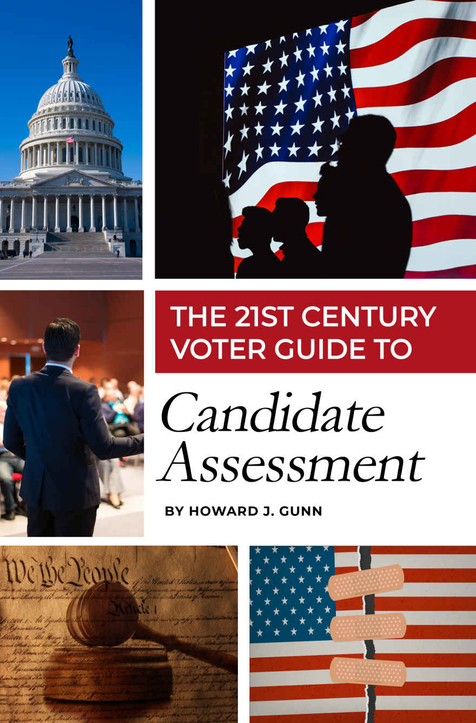Timely and insightful, author Howard Gunn explicates America’s political, financial, and ideological climate in The 21st Century Voter Guide to Candidate Assessment. Rough around the edges but supported with passion, data, and public records, this is a dense and damning read in opposition to the current political and economic system.
Over the past 50 years, the author explains, the American system has become one of manipulation and self-service to the wealthy, protected by the entrenched forces of political clout and influence. Pushing against the ideological trends of the Baby Boomers and Generation X, this book seeks to pull back the curtain on generations of subtle (and even overt) means that have established and maintained social inequality.
While the title suggests an easy-access guide, this is a challenging and academic text, packed with explorations of constitutional theory, political maneuvering, and the economic history of America. From explaining the rise and fall of middle class wealth to the increasing lack of faith people have in their elected officials, this is a sweeping and disturbing examination of what has gone wrong over many decades. Backed up by countless charts, graphs and academic papers, this is far from a radical screed, but the author is brazenly sounding an alarm bell for the voting populace, particularly in the months leading up to the 2020 American election.
Despite Gunn’s bold and unflinching political position, fueled by obvious anger and peppered with name-calling, he still writes with authority and surety, bolstered as he is with sound research. While this book has the whiff of a manifesto, and certainly the energy of one, it doesn’t go off the rails or veer too deeply into conspiracy theories. It is undeniable that there are certain powers that be with an unfair level of control over the legislation and political process in the United States, so this author lays it bare for voters.
There is more than enough information in these chapters to infuriate the uninformed, but plucking out the pearls does require effort. The key points are sometimes lost in a blend of numbers and figures, along with occasionally tangential chapter sections. The challenge of writing with such emotion is that fact and opinion do occasionally blend, and while Gunn does a good job of supporting his claims and suggestions, there is an obvious inherent bias alongside the righteous indignation. At times, it can undercut the author’s authority, though there is no outright lying or flagrant liberal propaganda, though some will likely disagree.
Mostly the book does a good job of focusing on the bare facts about where certain problems started, where they have brought the American people, and what could be done about it in the future. At times it does read like a well-controlled rant, supported with facts, but it never totally loses its objectivity. That said, as authoritative as the book may be, Gunn is still mostly preaching to the converted, which may be all that is possible in the current political situation.
All told, The 21st Century Voter Guide to Candidate Assessment will be highly valuable for certain readers, and those leaning towards Gunn’s side will have their eyes widely opened by what he has uncovered.
Book Links
STAR RATING
Design
Content
Editing
Get an Editorial Review | Get Amazon Sales & Reviews | Get Edited | Get Beta Readers | Enter the SPR Book Awards | Other Marketing Services
























Leave A Comment